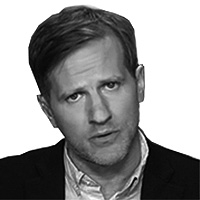All one needs to know about Hugo Chávez’s poisonous political legacy can be determined from the circumstances in which he died. Or how little we know about the manner in which—or when, or how—he died. As Venezuela’s bombastic caudillo was expiring in Cuba—and then at a military hospital in Caracas—various newspapers, pundits, and bloggers had already declared him dead, speculated on the cause of his supposed death, and examined the fragmentary evidence of his condition in an attempt to determine with what he was afflicted.

His handpicked successor, the fanatically loyal former union leader Nicolas Maduro, denounced those who speculated that the president was dying as “mentally ill,” “sick with hatred, sick with evil,” and hopelessly right wing. A Spanish news report suggesting that he was sliding off this mortal coil was written by “Francoists.” In Bolivarian Venezuela, where politically subtlety disappeared along with political stability, to question the government—which still hasn’t revealed the nature of his illness—was tantamount to treason against the republic.
Today, at last, Maduro, who possesses both the charm and politics of Erich Honecker, held a Chávez-like press conference to tell Venezuelans that their leader’s medical situation had worsened, and that it was the United States that likely gave him cancer. It was clear that Chávez had either already died (or was barely hanging on) when Maduro announced that the United States was planning a coup and, in response, he was expelling an American diplomat. If the military rises—and such a thing is unlikely, because after the 2002 coup Chávez ensured their loyalty—it would be the sinister machinations of the empire at work. A little preemptive explanation.
Hugo Chávez Frias was not a dictator, a semantic point to which his supporters devoted much argument, but he was most assuredly not a democrat. Having burst onto the Venezuelan political scene in 1992 as the leader of a failed military coup, he would later reposition himself as a champion of the ballot box, though one without much concern for the niceties of democracy. In the early days of Chavismo, despite his golpista background, Chavez commanded support from beyond the barrios, but his popularity waned significantly as he consolidated power by shuttering opposition media, rewriting the constitution, and expanding the supreme court. As his rule become more arbitrary and power centralized, thousands fled into exile. He won elections in conditions that, had they taken place in this country, would likely provoke revolution (and, in 2002, actually did in Venezuela). Chavez took his semi-democratic mandate as license to rule undemocratically and rebuild state institutions, now staffed with loyal supporters.
Chávez presided over a political epoch flush with money and lorded over a society riven by fear, deep political divisions, and ultraviolence. Consider the latest crime statistics from Observatorio Venezolano de la Violencia, which reckons that 2012 saw an astonishing 21,692 murders in the country—in a population of 29 million. Last year, I accompanied a Venezuelan journalist on his morning rounds at Caracas’s only morgue to count the previous night’s murders. As the number of dead ballooned, the Chávez regime simply stopped releasing murder statistics to the media.
All of this could have been predicted, and wasn’t particularly surprising from a president who believed that one must take the side of any enemy of the “empire.” That Zimbabwe’s dictator Robert Mugabe was a “freedom fighter,” or that Belarusian dictator Alexander Lukashenko presided over “a model of a social state.” Saddam Hussein was a “brother,” Bashar al-Assad had the “same political vision” as the Bolivarian revolutionaries in Venezuela. He saw in the madness of Col. Gaddafi an often overlooked “brilliance” (“I ask God to protect the life of our brother Muammar Gaddafi”). The brutal terrorist Carlos the Jackal, who praised the 9/11 attacks from his French jail cell, was “a good friend.” He praised and supported FARC, the terrorist organization operating in neighboring Colombia. The list is endless.
His was a poisonous influence on the region, one rah-rahed by radical fools who desired to see a thumb jammed in America’s eye, while not caring a lick for its effect on ordinary Venezuelans. In his terrific new book (fortuitously timed to publish this week) Comandante: Hugo Chávez's Venezuela, The Guardian’s Rory Carroll summed up the legacy of Chávez’s Venezuela as “a land of power cuts, broken escalators, shortages, queues, insecurity, bureaucracy, unreturned calls, unfilled holes, uncollected garbage.” One could add to that list grinding poverty, massive corruption, censorship, and intimidation.
This was Chávez’s reign and his legacy; extralegal, vindictive, and interested in the short-term gesture rather than the more difficult, long-term solution. From his revolutionary comrades in Cuba, he borrowed the slogan “patria, socialismo o muerte”—fatherland, socialism or death. The fatherland is a shambles, Bolivarian socialism has failed, and Comandante Chávez is dead. May the “revolution” die with him.






